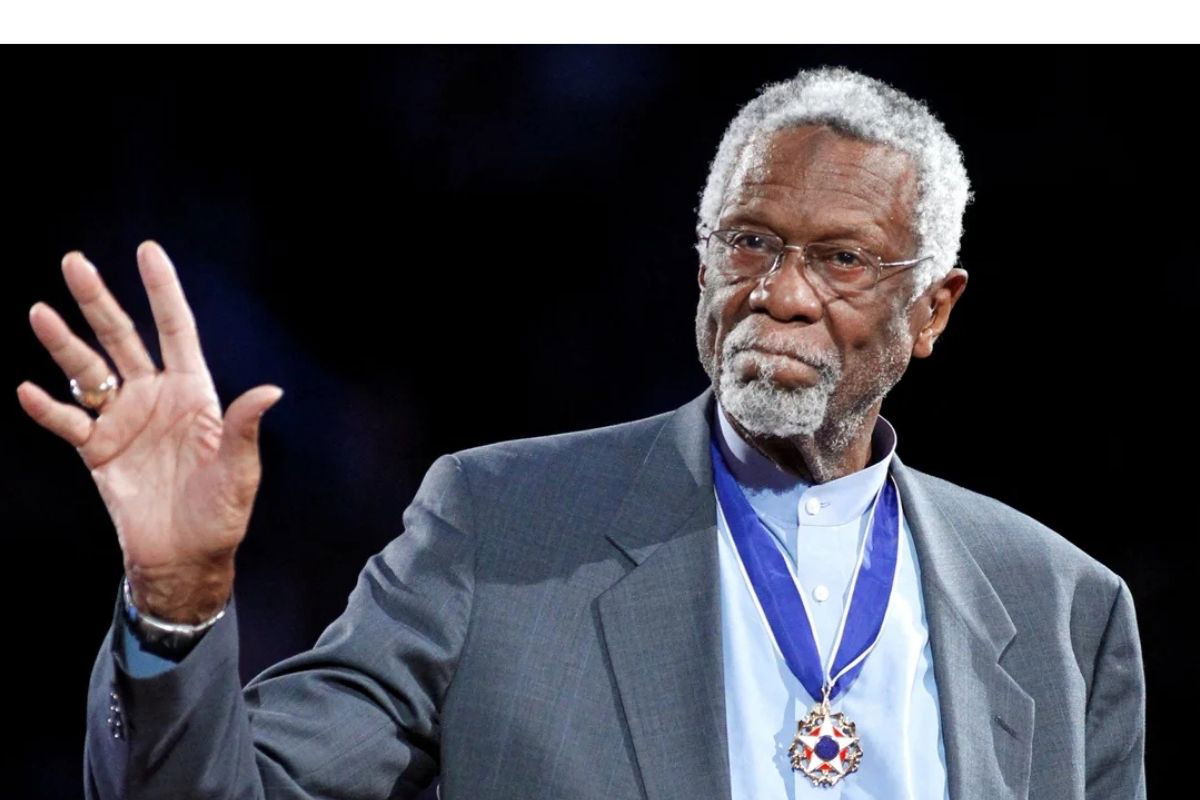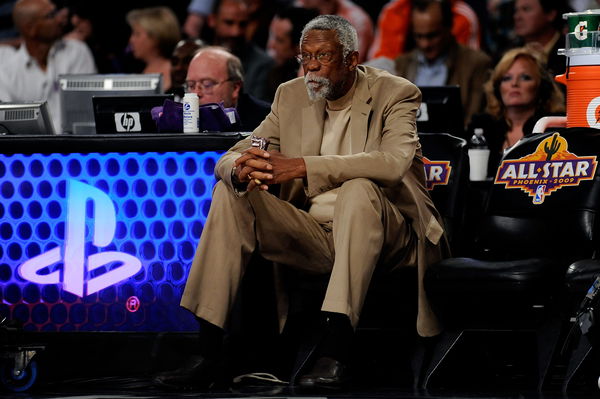



In 1956, one of the most famous trades in NBA history took place. The St. Louis Hawks traded the No. 2 pick, Bill Russell, to the Boston Celtics in exchange for center Ed Macauley and forward Cliff Hagan. Rumors from decades ago had it that the Rochester Royals were also interested in drafting Russell, but the Celtics owner at that time, Walter Brown, bribed them with Ice Capades.
Watch What’s Trending Now!
Ice Capades was a traveling entertainment show that presented a group of figure skaters, which was also owned by Brown. So he promised the Rochester Royals that the show would come to town for an entire week if they didn’t pick Russell. Of course, Royals’ representatives have denied the tale for decades… and the official reason shared was that they didn’t want to pay the player the 25k he wanted. And in the end, the St. Louis Hawks got him but traded him to the Celtics because they wanted Macauley instead—a St. Louis local.
But from there on, Russell played for the Celtics until the end of his NBA career in 1969—a period that witnessed him win 11 championships in 13 years. He won his last two championships as a player-coach. Back then, the perception was that Russell had successfully broken the longstanding coaching color line in American professional sports. However, the man who was the centerpiece of the Celtics in the 60s passed away on July 31, 2022. He was 88. Today marks his third death anniversary, and his wife, Jeannine Russell, couldn’t help but remember him.
She took to Instagram and wrote: “I dread this post every year for the last 3 yrs. It feels like it is more each yr. The void is endless & I can’t find the words today so If you would like to honor Bill, please do something nice for someone else. Or you could donate to Billrussell6foundation.org.”
Before his union with Jeannie, Bill Russell was married three times. Jeannie and Russell had tied the knot in 2018, when the former NBA player was 84.
While he is best remembered for his athletic skills, it was a long, tough road to the NBA. Born on February 12, 1934, in Monroe, Louisiana, his family relocated to Oakland, California. Like most African Americans during those turbulent years, Russell experienced racism. But new opportunities came around the time of World War II, and when a coach spotted and decided to take Russell under his wing, the youngster could finally see a path ahead for himself. Post high school, his defensive style got him a scholarship to the University of San Francisco. There, he helped his team to two NCAA Championships (1955 and 1956).
But his run-ins with racism and mistreatment in Boston pushed him to be active in the Civil Rights and the Black Power Movements of the 1960s. In 1963, he attended the March on Washington for Jobs and Justice; helped establish a basketball camp in Mississippi after NAACP leader Medgar Evers was assassinated; and went to Cleveland in 1967 to support Muhammad Ali after the boxer refused to be drafted for the Vietnam War. “I’m not worried about Muhammad Ali… He is better equipped than anyone I know to withstand the trials in store for him. What I’m worried about is the rest of us,” Russell had said.
He once even boycotted a game in Kentucky after some of his Black teammates were refused service in a coffee shop in 1961. “Part of preparations for the game, the team would have dinner together, and I had a couple of teammates from Kentucky, and they were going to have a separate pre-game meal. So I told the coach I’m not going to play. He said, ‘Why not? I said, ‘Cause of that,” Russell said.
View this post on Instagram
That action received criticism and backlash, but it also caused a shift within the local Black community. The indignity was not new for the community, but Russell’s actions were. The move was so powerful that he received a letter from Jackie Robinson—the man who shattered the color barrier in baseball—who acknowledged his efforts and stance.
Bill Russell built his legacy brick by brick, and while his efforts were acknowledged, he stood up for those whose contributions slipped within the NBA cracks.
Bill Russell waited more than four decades to accept the HoF ring
A 11-time NBA champion. Olympic gold medalist. Two-time NCAA champion. The first black head coach in any major U.S. sport. Russell truly deserved a basketball Hall of Fame honor, but chose not to attend the induction ceremony in 1975. He didn’t even accept the ring.
It was because he felt “others before me should have that honor.” He was referring to none other than Chuck Cooper, who in 1950 was the first African-American player drafted by the NBA. Cooper was finally inducted into the HoF in 2019, and his son, Chuck Cooper III, accepted the award on his father’s behalf. He was welcomed on the stage by Bill Russell, Tom Heinsohn, Ray Allen, Dominique Wilkins, Elgin Baylor, Kareem Abdul-Jabbar, Mannie Jackson, Julius Erving, Larry Bird, and Isaiah Thomas.

Getty
PHOENIX – FEBRUARY 14: NBA legend Bill Russell sits courtside at NBA All-Star Saturday Night, part of 2009 NBA All-Star Weekend at US Airways Center on February 14, 2009 in Phoenix, Arizona. NOTE TO USER: User expressly acknowledges and agrees that, by downloading and or using this photograph, User is consenting to the terms and conditions of the Getty Images License Agreement. (Photo by Kevork Djansezian/Getty Images)
And it was only in 2019 that Bill Russell accepted his own HoF ring. That was 44 years later.

